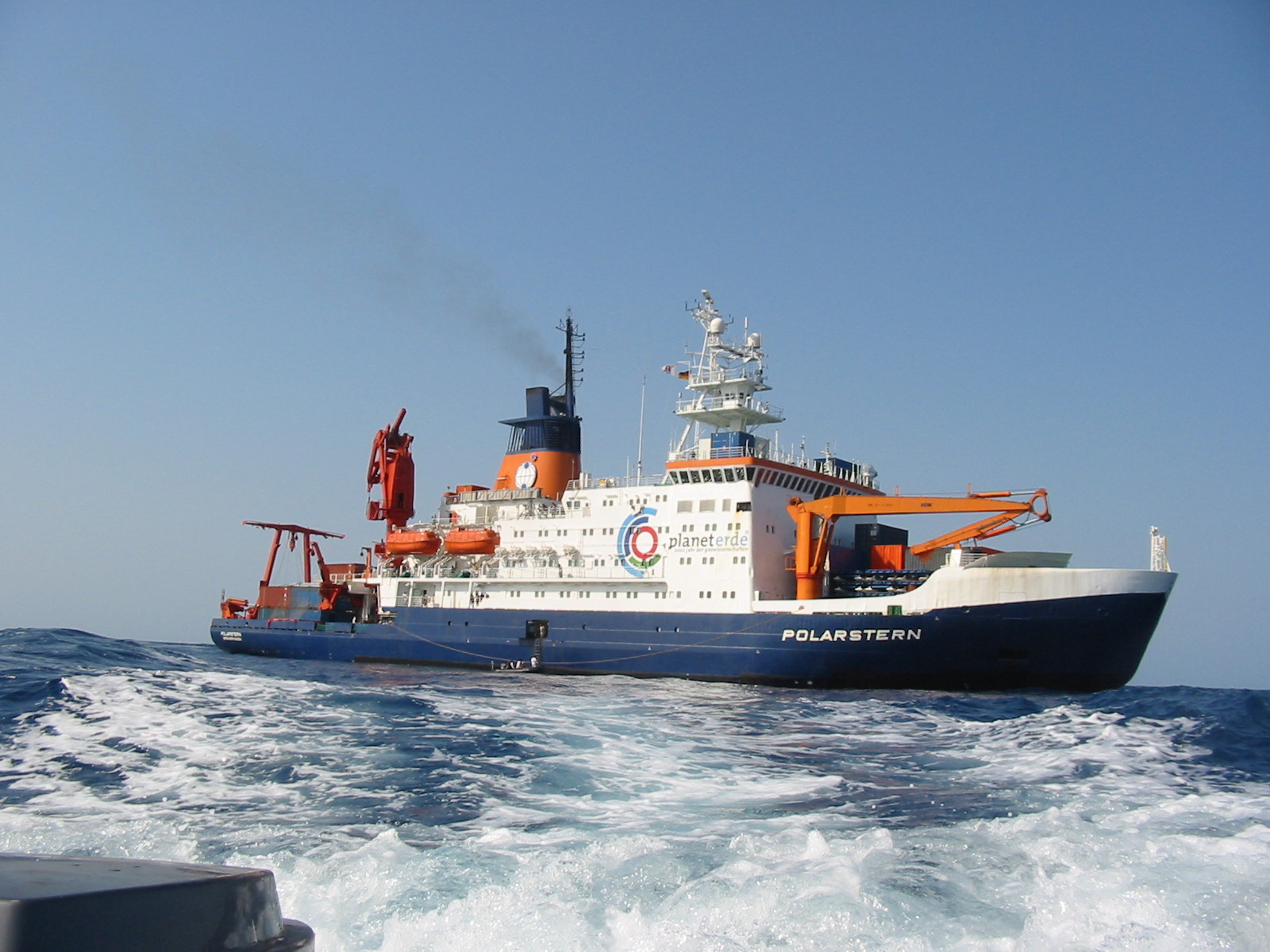POLARSTERN ANT-XXVII/1
- Area:
- Atlantic
- Time:
-
24.10.2010 - 26.11.2010
- Institution:
- IFM-GEOMAR
- Chief scientist:
- Karl Bumke
From 25 October to 26 November 2010 the German research vessel POLARSTERN sails with 48 scientists on board from Bremerhaven (Germany) to Cape Town (South Africa). This cruise is the first leg of the 27th Antarctic expedition of R/V POLARSTERN (ANT XXVII/1). Chief scientist is Dr Karl Bumke of the Leibniz Institute of Marine Sciences IFM-GEOMAR in Kiel (Germany).
The cruise will be utilized for continuous investigations of atmospheric and marine properties as well as for energy and material fluxes between ocean and atmosphere, for sea trials and tests of improved systems for underwater navigation and bathymetrie, rate measurements of cosmic rays, and for purposes of the investigation of Atlantic breeding grounds of whales of the southern hemisphere.
Monitoring of the energy and material exchange will be done by using the OCEANET observation system. The project is based on a network of expertise from IFM-GEOMAR, the Leibniz Institute of Tropospherical Research (Leipzig. Germany), the GKSS research center (Geesthacht, Germany), Alfred Wegener Institute (Bremerhaven, Germany), and Max Planck Institute for Meteorology Hamburg, Germany) as well as the Environmental Optics Laboratory (Budapest, Hungary). Simultaneous continuous rate measurements of cosmic particles (DESY) allow to investigate the influence of cloud formations on the cosmic particle flux.
A number of experiments will be carried out to investigate chemical constituents of atmosphere and ocean. This comprises the investigation of persistent organic pollutants (GKSS research center), which are transported atmospherically into remote areas, measurements of halocarbon (Texas A&M University) to investigate the role of the ocean in the global halocarbon cycle, and measurements of Iodine monoxide as well as nitrogen dioxide (Heidelberg University), which play an important role with respect to ozone concentration and by forming new ultrafine particles.On-board tests of a newly developed ship going Membrane-Inlet Mass spectrometer (AWI) will allow to quantify cellular carbon fluxes as a prerequisite to understand the effect of CO2 for example on photosynthesis. During the cruise a number of tests and sea trials will be performed also of the Posidonia system (AWI and Fielax) for underwater navigation and the Hydrosweep system (AWI). At least in the Angola basin an oceanographic mooring hosting an acoustic recorder (AWI) will be deployed to improve our knowledge of Atlantic breeding grounds of several species of baleen whales.



